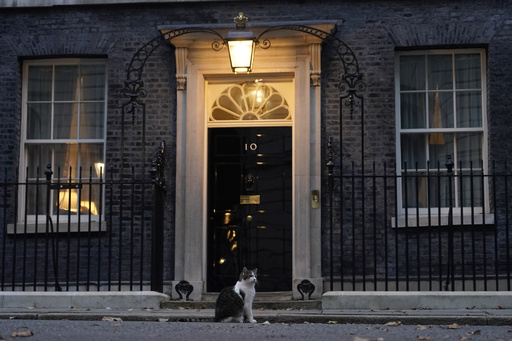
LONDON — On Wednesday, Treasury chief Rachel Reeves will present her inaugural budget in Parliament, a significant balancing act as she aims to secure billions for investments through both borrowing and tax increases, all while maintaining a stable environment for businesses and avoiding tax hikes on the working population.
This budget marks the first one proposed by a Labour Party government in nearly 15 years and has the distinction of being delivered by the country’s first female finance minister.
Reeves has committed to a budget that will supposedly put “more pounds in people’s pockets” and stimulate economic growth. However, the government is approaching this task against a backdrop of challenging public financial conditions.
Prime Minister Keir Starmer has cautioned that the forthcoming budget will need to address the “harsh light of fiscal reality,” acknowledging the limitations the government faces.
The Labour Party came into power on July 4, with a pledge to end the instability that followed years of Conservative leadership, improve the economy, and enhance public services, particularly the National Health Service (NHS).
The newly elected administration argues that tackling economic issues requires a strategy of increased taxes and controlled public spending growth to repair what they claim are the weakened foundations of the economy, which they tie to 14 years of Conservative policies.
Conversely, the Conservatives maintain that they have left behind a modestly growing economy, less debt, and a smaller deficit compared to many other wealthy countries in the Group of Seven.
Prioritizing investments in health, education, and housing poses challenges for the new government, especially given the sluggish economy, increasing public debt, and low growth rates. The administration has noted a £22 billion ($29 billion) “black hole” in the public finances attributed to previous Conservative governance.
As a result, tax increases seem unavoidable in the budget plan—although Labour has assured that they will not impose additional tax burdens on “working people,” a definition that has been contentious in recent public discourse. To address wage disparities, the Treasury has revealed that approximately 3 million of the lowest-paid workers will see a 6.7% pay rise next year, with the minimum wage set to increase to £12.21 ($15.90) per hour.
Reeves, the first female Chancellor of the Exchequer in British history, is anticipated to adjust the government’s current debt regulations to facilitate greater borrowing for essential investments in health services, educational institutions, railways, and other major infrastructure initiatives. Furthermore, she may propose increasing taxes paid by employers, excluding employees from additional financial burdens.
